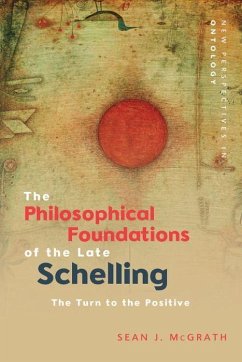
Thomas Reid and the Defence of Duty
Versandkostenfrei!
Versandfertig in über 4 Wochen
108,99 €
inkl. MwSt.
Weitere Ausgaben:

PAYBACK Punkte
54 °P sammeln!
Brings Thomas Reid into conversation with contemporary moral philosophy Is morality a subjective matter, dependent on our desires and interests, or are there objective moral truths? And if the latter, can we explain the objectivity of morality without appeal to metaphysics, a robust teleology or divine command? James J. S Foster argues that we find such an account of moral objectivity in Thomas Reid's defence of duty. This book provides an explanation of Reid's way of philosophy and his reasons for rejecting moral subjectivism, presents Reid's account of the concept, perception and motivationa...
Brings Thomas Reid into conversation with contemporary moral philosophy Is morality a subjective matter, dependent on our desires and interests, or are there objective moral truths? And if the latter, can we explain the objectivity of morality without appeal to metaphysics, a robust teleology or divine command? James J. S Foster argues that we find such an account of moral objectivity in Thomas Reid's defence of duty. This book provides an explanation of Reid's way of philosophy and his reasons for rejecting moral subjectivism, presents Reid's account of the concept, perception and motivational force of duty, and responds to contemporary challenges of moral subjectivism and pessimism from the perspective of Reid's moral philosophy. By illustrating how Thomas Reid provides this compelling interpretation of moral objectivism - which is both metaphysically modest and chimes with lived experience - Foster concludes that if Reid is correct, then there is an urgent need to reform current pedagogical practice and return to the teaching of practical ethics. Key Features Appeals to readers interested in Reid and Scottish philosophy; and to those broadly interested in moral philosophy Draws from Reid's entire corpus, not just his major published works, including 'Some Thoughts on the Utopian System', his correspondence and 'Lectures on Practical Ethics' Explains Reid's Baconian approach to moral philosophy Discusses the implications of Reid's understanding of practical ethics and the limitations of speculative philosophy for moral education James J. S. Foster is Associate Professor of Philosophy and Theology and Director of the Honours Program at the University of Sioux Falls.













